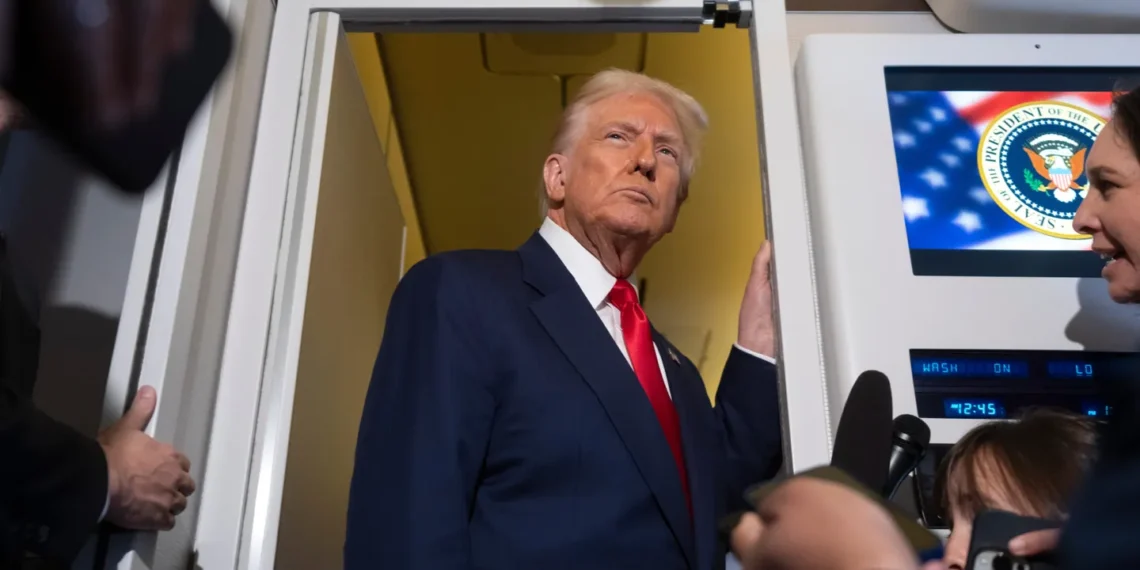The U.S. President Donald Trump has instructed the Pentagon, referred to by him as the “Department of War” to prepare for possible military action in Nigeria. The directive, announced on November 1 via Truth Social, follows his accusation that the Nigerian government has failed to protect its Christian population from extremist violence. The statement has drawn outrage from Nigerian officials and rekindled global debate about sovereignty, religion, and the scope of U.S. foreign policy.
Key Highlights
Trump threatens to deploy U.S. forces to Nigeria over alleged Christian persecution.
Nigerian government condemns remarks as a violation of sovereignty.
Pentagon confirms it is “preparing for action,” echoing Trump’s rhetoric.
Analysts warn of potential diplomatic fallout and regional instability.
Evangelical groups in the U.S. praise the move; critics call it “political theatre.”
Trump’s Directive and Rhetoric
On Truth Social, Trump accused the Nigerian government of “turning a blind eye” to the slaughter of Christians by “radical Islamic terrorists.” He warned that if Nigeria failed to act, the U.S. would “kill the Islamic terrorists” and possibly intervene militarily to “wipe them out completely.”
He further threatened to cut off all U.S. aid to Nigeria, calling the country “disgraced” and accusing its leaders of endangering Christianity. Trump’s use of the defunct term “Department of War”, replaced by “Department of Defense” in 1947 appeared calculated to convey an aggressive posture.
U.S. Defense Secretary Pete Hegseth later affirmed the president’s order, stating that preparations were underway to “end the killing of innocent Christians.” The statement echoed Trump’s 2024 campaign focus on combating “radical Islamic terrorism.”
Read also:
- Timi Frank hails Trump for declaring Nigeria ‘Country Of Particular Concern’, demands sanctions on corrupt officials
- FAITH UNDER FIRE: Trump warns of “Mass Slaughter” of Christians in Nigeria
- Trump directs nuclear weapons testing to resume for first time in over 30 years
Nigeria’s Violent Landscape
Nigeria has battled extremist insurgencies for over a decade, led by groups such as Boko Haram and the Islamic State West Africa Province (ISWAP). Thousands have been killed in attacks, with victims spanning Christian, Muslim, and secular communities. Human rights groups report that Christian villages have faced disproportionate assaults in Plateau, Benue, and southern Kaduna.
However, Nigerian officials reject claims of state-backed persecution, attributing the violence to criminal networks, ethnic rivalries, and resource-based conflicts worsened by poverty and climate pressures. President Bola Tinubu’s administration maintains that ongoing military campaigns are gradually weakening the insurgents.
In an official statement, Nigeria’s Foreign Ministry condemned Trump’s comments as “reckless interference” and reaffirmed the country’s sovereignty. President Tinubu also dismissed the claim of religious bias, insisting his government protects all citizens equally.
Prominent political commentator Abubakar Sidiq Usman criticized Trump’s remarks as hypocritical, pointing to America’s own struggles with gun violence. He urged Nigeria to strengthen its diplomatic engagement to counter such narratives.
Across social media, Nigerian users voiced anger and defiance, with some daring Trump to “try it,” while others highlighted that the nation’s crisis goes beyond religion to include security and economic factors.
Global and Domestic Reactions
In the United States, Trump’s evangelical supporters hailed his declaration as a bold defense of global Christianity. Conversely, critics and policy analysts warned that unilateral intervention could breach international law and worsen instability in West Africa.
Major U.S. outlets such as Reuters, NBC News, and The Washington Post framed the statement as a possible indicator of Trump’s revived interventionist tendencies. ECOWAS and the African Union have yet to respond officially, though early signals suggest concern about U.S. militarization in African affairs.
What It Means for U.S.–Nigeria Relations
Nigeria remains a major U.S. partner in counterterrorism and regional security, receiving over $500 million annually in military and humanitarian aid. Analysts warn that Trump’s threats could undermine cooperation, heighten anti-American sentiment, and embolden extremist groups.
Experts argue that while violence against Christians is a serious concern, a U.S. military operation could inflame tensions and destabilize an already fragile region. As one Nigerian analyst noted, “This is less about faith and more about politics. Nigeria doesn’t need invasion, it needs partnership.”
For now, Trump’s declaration remains rhetorical. But the implications for U.S.–Africa relations and Nigeria’s internal stability are profound.






